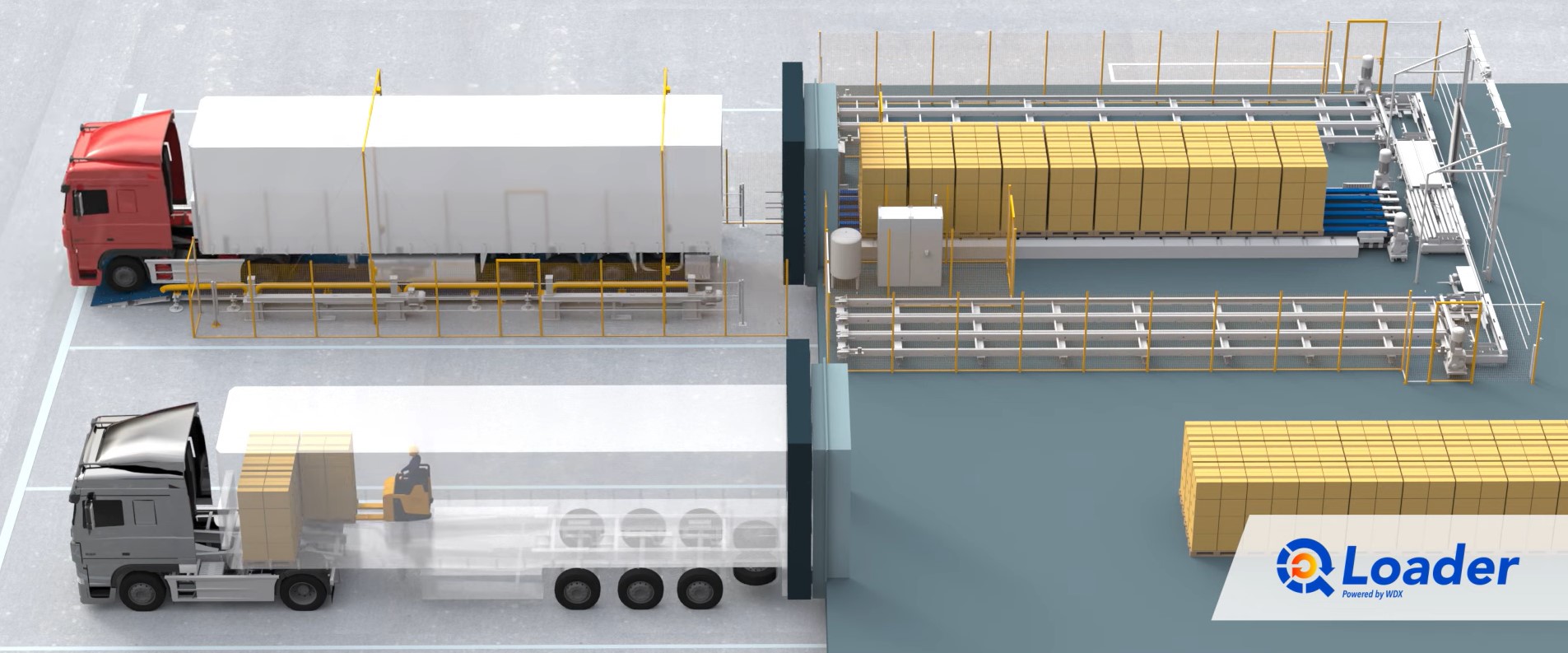Revolutionizing Logistics: The Automated Truck/Trailer Loading System Market's Latest Trends and Developments
18-Sep-2024

Introduction
The global logistics industry is in the midst of a transformative period, driven by technological advancements that are reshaping the way goods are transported and distributed. One of the key innovations leading this transformation is the automated truck/trailer loading system (ATLS). These systems have gained significant traction in recent years, promising increased efficiency, reduced operational costs, and enhanced safety in the world of logistics.
ATLS aims to streamline and optimize the logistics and supply chain processes by automating manual tasks involved in the loading and unloading goods. It helps improve efficiency, safety, and productivity in the warehouse and distribution center environment. As the ATLS market experiences ongoing expansion and evolution, the underlying technology powering these innovations also witnessed significant progress. In this article, we will explore the current trends and advancements within the ATLS industry:
Integration with IoT and Data Analytics
The latest ATLS solutions increasingly integrate with the Internet of Things (IoT) and data analytics. These systems can collect real-time data on cargo conditions, weight distribution, and equipment status by equipping trucks and trailers with sensors and tracking devices. This data is then analyzed to optimize loading processes, monitor the condition of goods, and improve real-time safety, ensuring that cargo is loaded efficiently and safely. Additionally, it allows for continuous monitoring of the condition of goods during transit, preventing damage and ensuring the safety of the cargo. All of these contribute to more efficient and secure logistics operations.
For instance, Alpiconn, a solutions provider for manufacturing and packaging facilities, distribution centers, and warehouses, offers a smart truck-loading solution. This solution integrates with IoT monitoring systems to eliminate errors caused by humans and speeds up the loading process. The system uses digital identification technologies to automate the process and ensure accuracy.
Machine Learning and AI Algorithms
Machine learning and artificial intelligence (AI) are harnessed to develop intelligent ATLS systems. These systems learn from historical data and adapt loading strategies based on variables, such as the type of cargo, weather conditions, and traffic patterns. These systems adjust their approach based on factors, such as the specific type of cargo being transported, prevailing weather conditions, and traffic patterns. This adaptability ensures that the loading process is highly efficient, tailored to each situation, and reduces the likelihood of accidents. In essence, AI-driven ATLS brings intelligence and flexibility that significantly enhance the safety and efficiency of cargo loading operations.
For instance, Pickle Robot, a warehouse tech startup, designed an AI-enabled robotic automation system that unloads non-palletized goods at a rate of more than 600 pieces per hour (PPH). The company combines AI software, computer vision, and sensor technology to develop its robots, which work autonomously to unpack trailers, trucks, and containers.
Moreover, in September 2023, Toyoda Gosei launched an AI-based truck-loading logistics system that automates truck-load volume calculations to improve transport efficiency in product delivery. The system has been implemented at its Miyoshi Distribution Centre in Aichi, Japan.
Advanced Safety Features
Safety remains a top priority in the logistics industry. ATLS solutions incorporate advanced safety features such as collision detection systems, emergency braking, and obstacle avoidance technology. These innovations serve a dual purpose, which includes safeguarding the well-being of workers involved in the loading process and averting potentially expensive accidents and delays. By proactively identifying and addressing safety risks, ATLS solutions contribute to smoother and more secure logistics operations while minimizing costly disruptions.
In April 2023, Ancra Systems B.V., a leading provider of ATLS solutions, showcased its latest automatic truck loading systems at the Forest Products EXPO in Nashville, the U.S. The company showcased its innovative container loading plate system, which is designed for the woodworking industry's loading challenges. Ancra Systems' products include advanced safety features, such as collision detection systems, emergency braking, and obstacle avoidance technology.
Conclusion
The automated truck/trailer loading system market is evolving rapidly to meet the demands of an increasingly complex and competitive logistics industry. With the integration of IoT, AI, robotics, advanced safety features, sustainability initiatives, modular designs, and blockchain technology, these systems are becoming indispensable for companies striving to optimize their operations. As the logistics sector continues to evolve, ATLS will play a pivotal role in ensuring efficient, safe, and sustainable cargo handling, revolutionizing the way goods are transported around the world.
About the Author
 Saurav Sarkar is an accomplished researcher and writer with over three years of experience in conducting thorough research. His passion for exploring various subjects and delving into in-depth analysis has led him to develop a keen understanding of research nuances. He remains committed to staying current with the latest market trends, recognizing their impact on businesses and society. Through his work, Saurav aims to contribute to knowledge dissemination and foster informed discussions on critical issues. He can be reached at info@nextmsc.com
Saurav Sarkar is an accomplished researcher and writer with over three years of experience in conducting thorough research. His passion for exploring various subjects and delving into in-depth analysis has led him to develop a keen understanding of research nuances. He remains committed to staying current with the latest market trends, recognizing their impact on businesses and society. Through his work, Saurav aims to contribute to knowledge dissemination and foster informed discussions on critical issues. He can be reached at info@nextmsc.com
Add Comment
Related Blogs
Deep Dive into Germany's Intralogistics Market: TAM, SAM, VAM Insights
Introduction The Germany intralogistics market is poised...
Deere and Company Leading The Lawn Care Products Market With Around 11.2 percent Share- Know The Reason Why
According to Next Move Strategy Consulting report the global...
Smart Building Solutions: Transforming Commercial HVAC Systems with IoT
In today's dynamic commercial real estate landscape, the...










